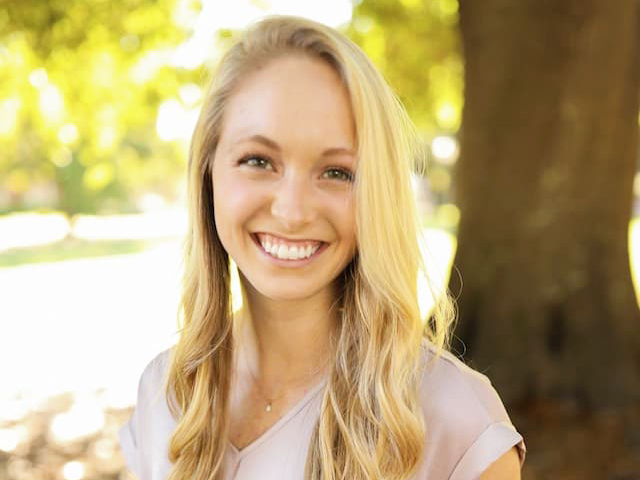
Biochemistry and Spanish alumna Hanah Walker '22 graduated from Samford feeling confident that the skills she gained in the Department of Chemistry and Biochemistry’s faculty-guided research program ultimately helped prepare her for a career in medicine. The constant unknowns from each experiment and pivoting when outcomes didn't go as planned taught Walker to think more creatively and be detail oriented.
"Chemistry research taught me a new level of critical thinking and problem-solving skills," Walker said. "It gave me a unique perspective that will be important in developing innovative treatment plans, approaching rare case findings and understanding how to provide my patients with individualistic and high-quality care," Walker said.
Walker participated in the research program every semester from her sophomore to senior year under the supervision of Associate Professor of Chemistry Paul Wiget.
"I am so grateful for Professor Wiget’s mentorship and guidance," Walker said. "His love and fascination for the organic world showed me how to love and find a deeper appreciation for synthetic organic chemistry."
"Discovery and experience are the heart of education," Wiget said. "In order to support students entering my research group, we first talk about their goals and discuss various projects we are working on. Then we find one that interests that student."
Wiget's research focuses on physical organic chemistry. Walker was responsible for synthesizing and analyzing molecules.
"I had two main projects," Walker said. "The first one we worked on as a group. My role was to synthesize two different molecules and analyze them. We used this information to help us better understand inductive effects and hyperconjugation in our molecule of interest."
The second project focused on determining ideal reaction conditions to generate a commonly used graphical analysis known as Swain-Scott correlations.
"I found organic chemistry to be frustrating at first because of the complexity of the experiments and because the synthesis of molecules can take a lot of patience and perseverance, but ultimately those aspects allowed me to appreciate my experience and gain more from it," Walker said. "I am thankful for the skills and mentorship I gained throughout my research experience at Samford."
"Hanah was always an exceptional student," Wiget said. "Brilliant, kind and hardworking. She took ownership of her project and wanted to understand it deeply. She's an extraordinary person and will succeed wherever she goes. I'm honored to have worked with her."
Walker is a first-year medical student at the University of Tennessee Health Science Center College of Medicine in Memphis, Tennessee. She hopes to become a pediatrician or OB-GYN.
"I also plan to concentrate on addressing health disparities and social determinants of health in my practice," Walker said.
Learn more about the Department of Chemistry and Biochemistry's research program.
Support the next generation of scientists with a donation.
